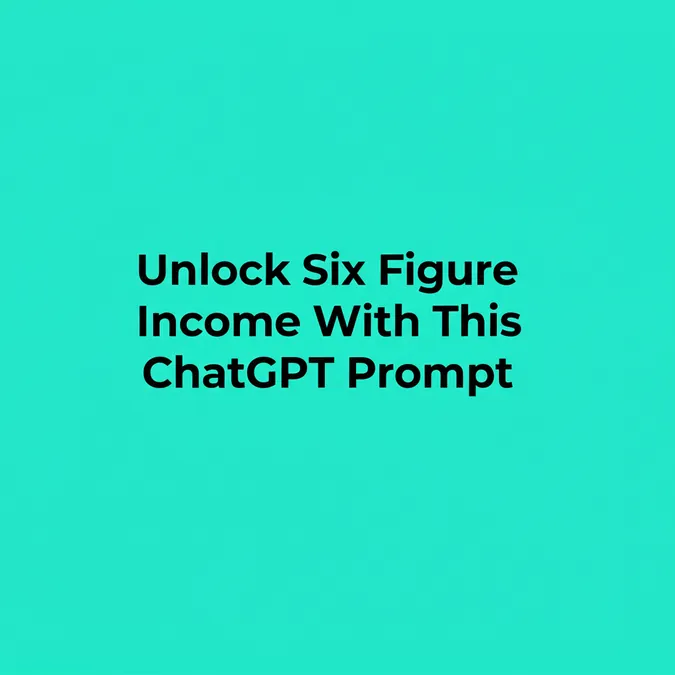Developer Offer
Try ImaginePro API with 50 Free Credits
Build and ship AI-powered visuals with Midjourney, Flux, and more — free credits refresh every month.
PrizePicks Sues Former Director Over ChatGPT Data Leak
![]()
PrizePicks has initiated legal action against its former employee Judah Huffman. The company accuses him of taking company secrets to DraftKings after allegedly uploading sensitive company documents to ChatGPT.
Huffman served for two years as the Director of Social Media at PrizePicks. He then transitioned to a new position with DraftKings, taking on the role of Director of Social and Community for its sportsbook.
PrizePicks asserts that before his departure, Huffman uploaded a highly sensitive brand planning document and other documents detailing the company’s plans to ChatGPT.
It is believed that DraftKings initially offered Huffman an annual salary of 200,000 dollars. This offer was later increased to 210,000 dollars. PrizePicks alleges this salary hike resulted from Huffman sharing company secrets with his new employers.
Elisa Richardson, a spokesperson for PrizePicks, stated, "We are taking swift steps to ensure that our trade secrets and innovations are safeguarded," as reported by SBC Americas.
Alleged Noncompete Violations and Evidence Destruction
Furthermore, Huffman had previously signed a noncompete agreement with PrizePicks. The company claims he violated this agreement by signing a contract with DraftKings on May 2 and subsequently submitting his resignation to PrizePicks on May 5.
The lawsuit, which was filed in the Western Washington District Court, asserts: "Huffman’s misappropriation and disclosure of PrizePicks’ Trade Secrets to DraftKings, a competitor, were intentional, deliberate, and calculated and therefore willful and malicious, especially considering Huffman’s destruction of evidence."
After submitting his notice, Huffman returned his company laptop to PrizePicks. The company noted a "surgical" deletion of files, emails, and chats from the device. The lawsuit alleges this action is evidence of Huffman’s guilt and an attempt to cover his tracks.
PrizePicks is suing Huffman for several alleged offenses, including breach of contract, violation of the Defend Trade Secrets Act, and breach of fiduciary duty. Additionally, the company is seeking a temporary injunction to block his employment at DraftKings.
A Familiar Pattern DraftKings Own Legal Precedents
This situation echoes a previous case where DraftKings sued its former VIP executive, Mike Hermalyn. Hermalyn was accused of violating his noncompete agreement and sharing trade secrets when he joined Fanatics, a rival betting company, after leaving DraftKings in February of the previous year.
In that instance, a Massachusetts federal judge issued a preliminary injunction in April. This injunction limited Hermalyn’s capacity to work on business related to DraftKings but affirmed his general employment at Fanatics.
The two companies settled later that year, and Hermalyn continues to head Fanatics’ VIP operations.
DraftKings itself was penalized for sharing sensitive information on social media last year. The US Securities and Exchange Commission SEC fined the company 200,000 dollars for disclosing nonpublic information to investors through CEO Jason Robins’ social media accounts.
The Growing Challenge of AI and Corporate Data Security
While Robins’ incident involved social media rather than ChatGPT, the increasing use of artificial intelligence tools presents a significant threat to corporate security. A 2023 study by Cyberhaven found that 4.7 percent of employees have uploaded confidential data to ChatGPT.
Notable examples of such risks include Samsung engineers who uploaded internal meeting transcripts and pasted other sensitive materials into ChatGPT in an effort to analyze the data.
More recently, a lawyer in Utah was discovered to have generated a fake case using ChatGPT. Richard Bednar filed a brief that referenced a non existent "Royer v. Nelson" case.
After admitting to the unauthorized use of the AI tool, Bednar was ordered to cover the opposing attorney’s legal fees and refund his own client’s fees.
Similarly, attorneys representing Alabama’s prison system included five fabricated case citations generated by ChatGPT in federal filings just last month. A federal judge is currently considering sanctions, which may include fines, and has ordered the law firm to explain its oversight procedures.
Within the gambling industry itself, Google announced a crackdown last year on parasite SEO affiliate sites that utilize ChatGPT for content generation.
Compare Plans & Pricing
Find the plan that matches your workload and unlock full access to ImaginePro.
| Plan | Price | Highlights |
|---|---|---|
| Standard | $8 / month |
|
| Premium | $20 / month |
|
Need custom terms? Talk to us to tailor credits, rate limits, or deployment options.
View All Pricing Details

